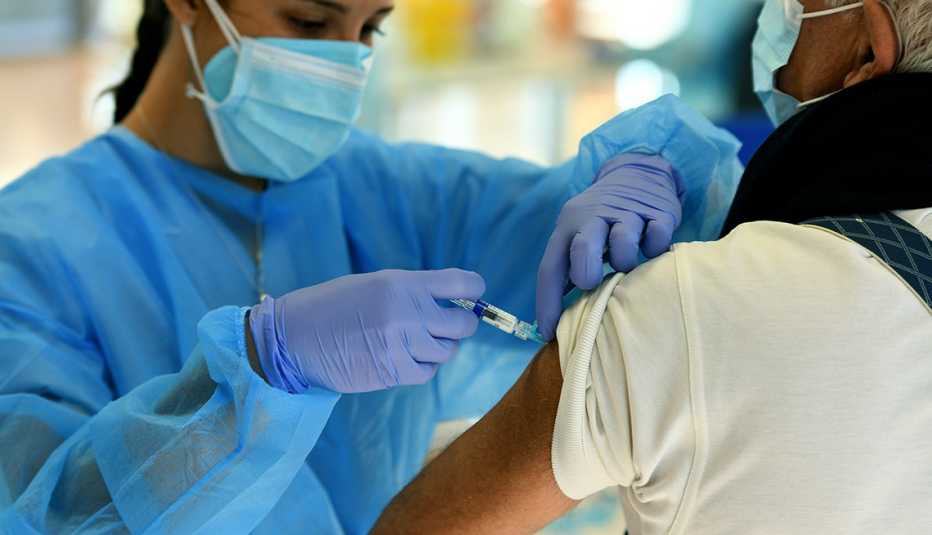Staying Fit
It’s often thought of as a risk to young kids, but respiratory syncytial virus (or RSV for short) can be downright dangerous for older adults too.
More than 177,000 older Americans wind up in the hospital each year because of RSV — well within the range of the flu’s annual impact — and roughly 14,000 die from it. And right now, cases of RSV are surging in many areas of the country. Data from the Centers for Disease Control and Prevention (CDC) show that nationwide infection rates have skyrocketed in the past few weeks, and older adults are being hospitalized at higher rates than previous years.


AARP Membership— $12 for your first year when you sign up for Automatic Renewal
Get instant access to members-only products and hundreds of discounts, a free second membership, and a subscription to AARP the Magazine.
That’s bad news ahead of what many experts say could be a stormy season for flu and COVID-19. All three illnesses — RSV, influenza and COVID-19 — share a similar list of symptoms. And all three cause complications in adults with certain chronic health conditions and in those who are 65 and older.
“I think RSV is a virus that’s been a little bit under the radar screen, but it’s responsible for a significant number of infections,” says Marshall Glesby, M.D., associate chief of the Division of Infectious Diseases at Weill Cornell Medicine in New York. “So it is something to be aware of.”
Here’s what you need to know about RSV, including how to help prevent an infection and how to spot warning signs if you do get sick.
1. Symptoms are hard to separate from other common illnesses
What makes the increase of RSV cases so tricky, especially this time of year and given the pandemic, is that many of its common symptoms overlap with those of the common cold, flu and COVID-19.
A cough, a fever and a runny nose often accompany an RSV infection, the CDC says. Same with wheezing, sneezing and a decrease in appetite. You may even notice a “pinkeye-type of manifestation” or sinus-like issues, Glesby adds. It’s typical for these symptoms to appear in stages, not all at once.
Most adults who get RSV will experience a mild course of these ailments. But in some adults — especially older adults who have weaker immune systems — the illness can turn serious and lead to pneumonia or congestive heart failure. People with asthma and chronic lung disease may also suffer with more severe symptoms that make it difficult to breathe.







































































